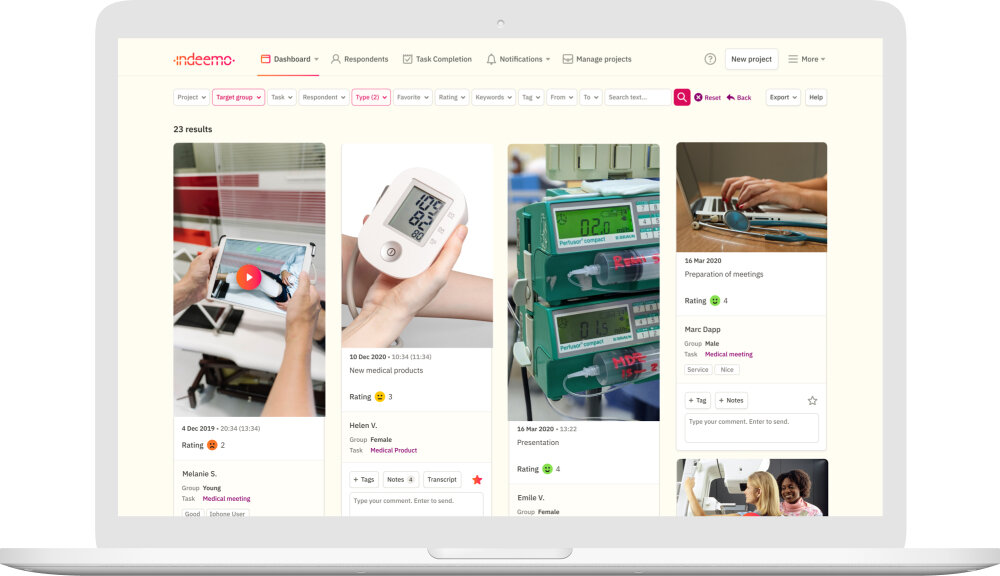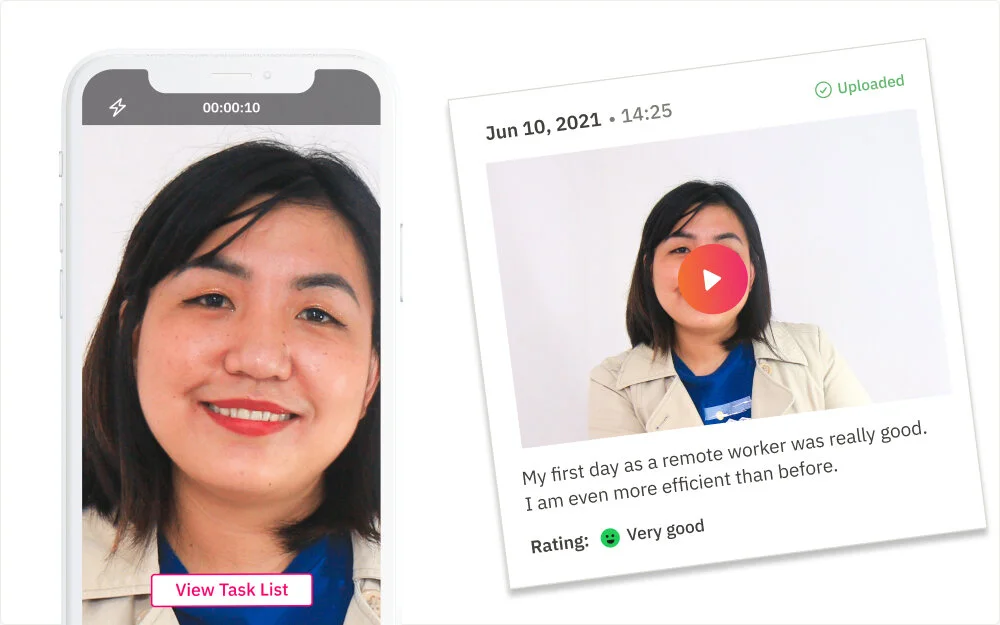Remote Research and Mobile Ethnography
What is Remote Research?
Remote research is a form of research where the researcher and respondent are not physically present in the same space i.e. they are not meeting face-to-face.
It has exploded in popularity in recent years due to a number of drivers including:
Emergence of new technologies like Screen recording apps
Ubiquity of Smartphones and Internet connections
Safety issues related to in-person meetings due to COVID
Ideal form of research for sensitive topics like health and finance
Cost effective methodology i.e. reduction in travel costs a significant benefit
Remote user research has also matured in recent years, using increasingly sophisticated remote observational tools. Initially, it consisted primarily of Skype / Zoom calls (phone calls before that) and mobile screen recordings but increasingly consists of Online Focus Group and Mobile / Digital Ethnography (What is Mobile Ethnography?).
The approach offers additional benefits to other actors from moderators, to respondents as we detail below.
Remote Research & Mobile Ethnography
Mobile ethnography is a form of remote research. While remote research can refer to any remote approach, mobile ethnography has emerged as one of the most attractive forms of advanced remote user research.
Key Benefits of Remote Research (Mobile Ethnography)
1/ Cost-Effective Methodology
There are numerous savings from the approach on all sides. Respondents no longer have to travel to physical locations. Researchers don’t have to invest in labs in a central location. The time taken to travel to meet respondents is also removed (particularly relevant for multi-market research which historically entailed overseas travel with flights and hotels needed).
2/ Rich Audio Visual Methodology
By recording the respondents, researchers now have access to rich audio-video data which can make for powerful outputs for clients. Seeing a participant up close provides a periscopic insight into their world - offering an “over the shoulder” view. Similarly, observed behaviour offers a benefit over ‘recall' especially when the subject matter relates to some historic event or consumption event from the past.
3/ Flexible Methodology
A key benefit of mobile ethnography as a remote methodology is the broad range of (primarily) qualitative research methods it supports.
This includes - screen recording, customer journey mapping, service design research, generative research, mobile or video diary studies, longitudinal research, research into sensitive areas like healthcare research and usability testing.
4/ In Context Approach
As participants are using their own stuff from the comforts of their own homes (primarily) the insights are particularly rich. In the “real world” looking over someone’s shoulder as they browse on their bedroom computer is an unlikely scenario - but this is exactly what mobile ethnography offers. Participants tend to be more comfortable in their own environments leading to more authentic responses.
5/ Extended Time Duration
With most face to face research, you capture a snapshot in time. Perhaps 30-60 mins on one day with a participant. When it comes to focus groups you may get a little more time but the per participant time dwindles the greater the number of participants. All it takes is one or two dominant participants to influence proceedings crowding out other participants. Mobile ethnography based research can run for longer periods providing insights over an extended duration.
6/ Delivers Results Quickly
The set-up times and costs are significantly reduced when compared to traditional approaches. Participants can be recruited and screened online. The data produced can appear on a researcher's dashboard in a matter of minutes. There is no need to “write up your notes” or to wait for the research reports to return from the field.
Additional benefits include - an enhanced ability to reach hard to reach user groups, the ability to source tight user cohorts (ideal customer profiles), cost-effective approach to multi-market research (geographic diversity),
In terms of some areas to be aware of it is important to ensure the following:
Recruitment: Given the ease of recruiting online, it is important to screen participants to ensure fit while also providing adequate incentives.
Data security: If users are filming in public spaces or showing details such as bank details on a screen recording it is important to apply robust measures to protect participants e.g data masking and data obfuscation.
Engagement: When setting tasks for participants it is important to keep them as engaging as possible to help ensure completion rates are high.
“I was amazed by how user-friendly and ergonomic both the participant app and the researcher online platform were.”
Summary
While remote research is not a new concept, recent developments have promoted it as a particularly important element of qualitative research. The most basic approach to it is a simple phone call (or increasingly a Zoom call). However, the emergence of mobile ethnography and resultant benefits make it an attractive methodology to be explored further.


